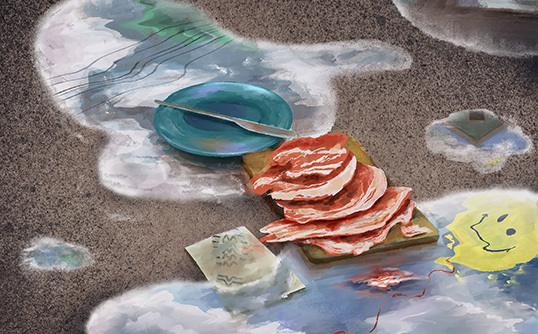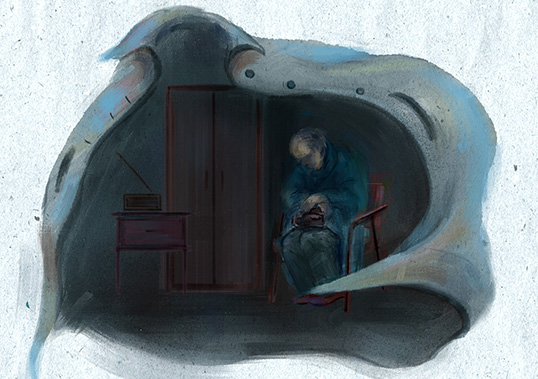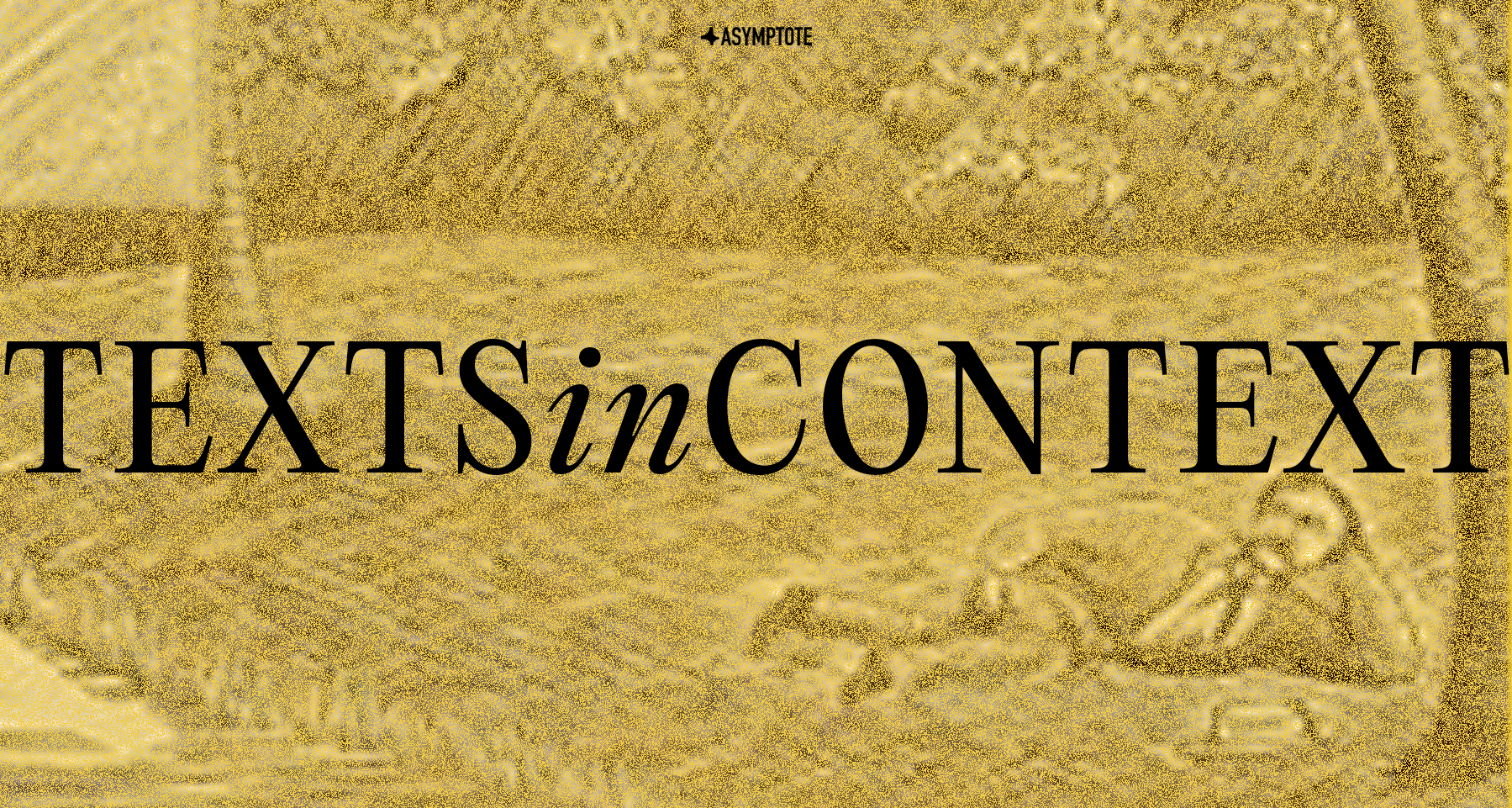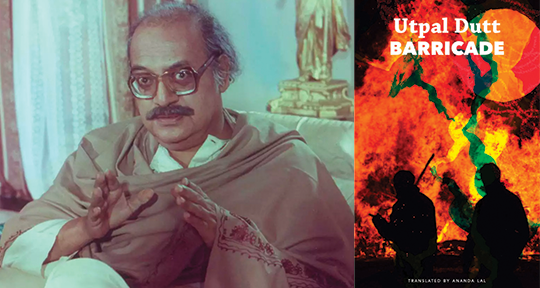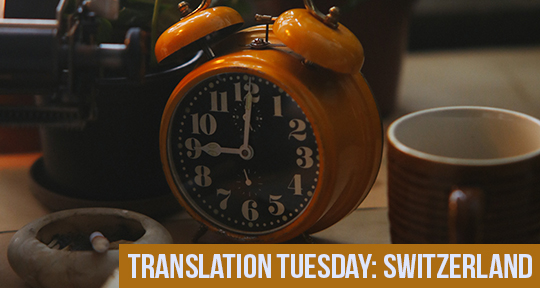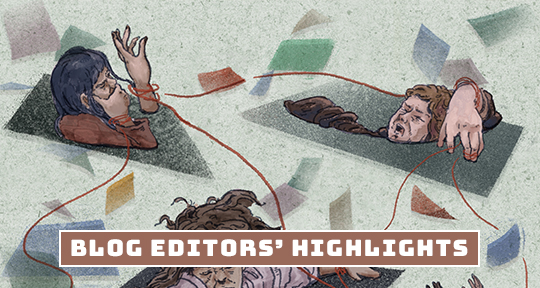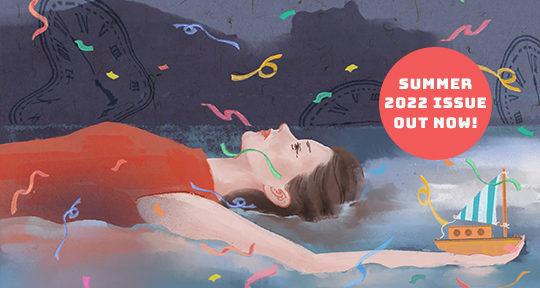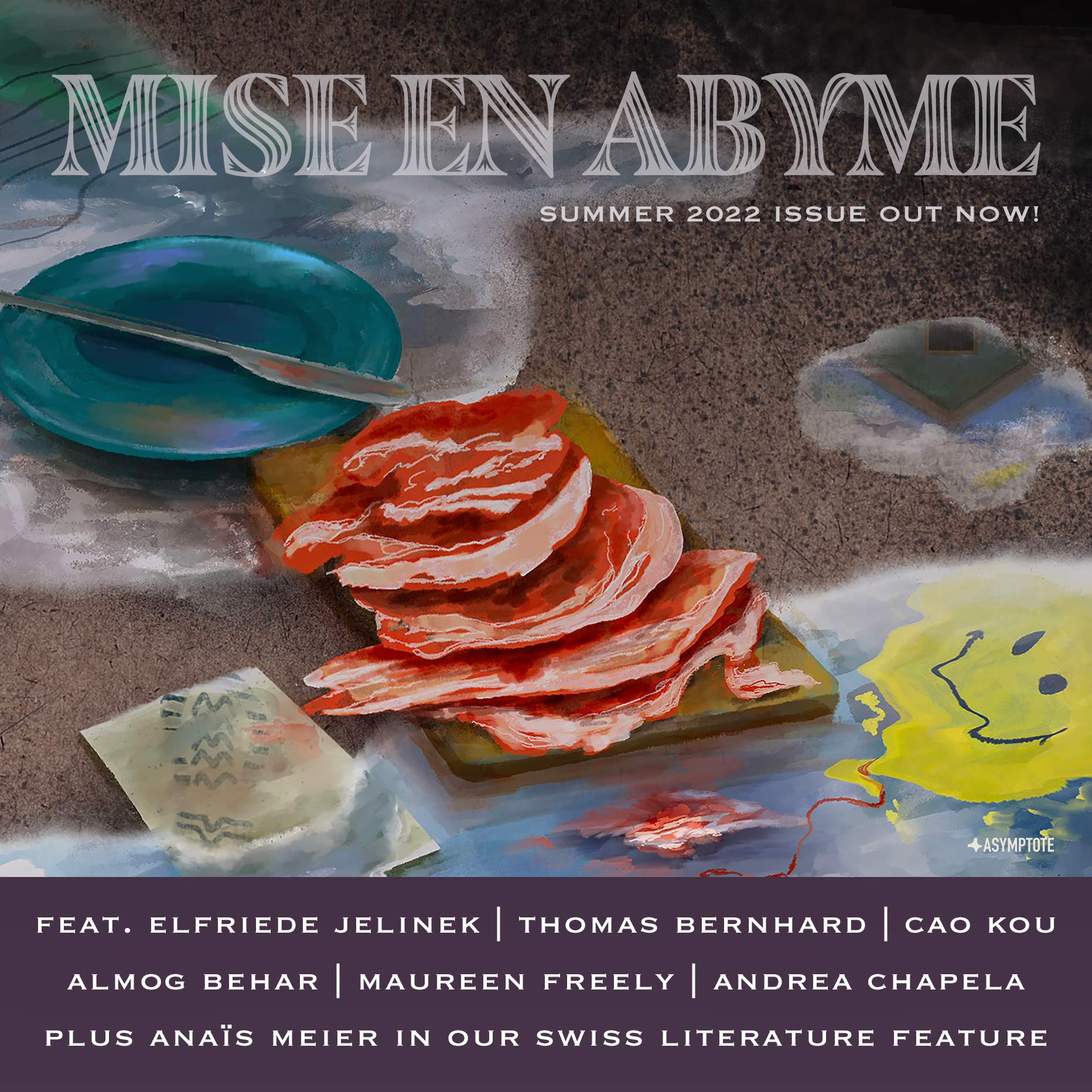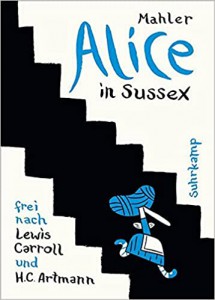Asymptote’s Winter 2023 Edition is out, showcasing literature from thirty-four countries and fifteen languages! Marking our twelfth year in world literature, this issue is headlined by César Aira, Geetanjali Shree, and César Vallejo. Here, blog editors Xiao Yue Shan, Meghan Racklin, and Bella Creel introduce their highlights from the issue, from an explosive, violent garden, to a perverse love story and vengeful doll, to a piece of criticism that reads more as art than review.
In a short eulogy for the brilliant, transportive Catalan writer Mercè Rodoreda, Gabriel García Márquez recounts a brief visit he once paid her in Barcelona, around a decade before her death. Slightly taken aback by her impeccable resemblance to her characters, namely in what she had described as her “innocence,” the García Márquez intuited that Rodoreda, like the people she had raised to such stark emotional reality, had a penchant for growing flowers. “We spoke about [gardening], which I consider another form of writing,” he recounts, “and between our discussion of roses . . . I tried to talk to her about her books.”
The botanic, as both these great writers knew, is transportive. There is nothing so beguiling as the language of flowers—their ancient names, colour, perfume, their mystic properties and secret variety; we know this, because the writers before us had long known it, just as the writers before them had known it, and on and on backwards, ever since the first poets looked at the world in bloom, and saw in it an opening to the sublime. Over and over, we’ve harvested from the natural world to give our poems tint and fragrance, to purple our prose and frame our visions, and in the same way that soil can be exhausted, the power of this invocation has since waned through countless verses. The challenge to the text now, when evoking landscape, is what García Márquez knew: the writer cannot simply pick the flowers—she must grow them herself.
In Marosa di Giorgio’s excerpt from The Moth, the garden is explosive. Translated with a musical ear by Sarah María Medina, the prose poems luxuriate in their sheer volume of lush imagery, of ripe fruit and their rainbow palette, bacchanalian sweetness and insatiable appetite. Di Giorgio has always been an exceptionally visual writer, with her prodigious use of images inspiring comparison to the works of Bosch and Dalí—and here her painterly instincts are once again ravishing. In broad strokes a feast is spread before us, peaches and dates and syrup, as her image-language fills the lines with taste and spectacle. She once said that “only the poet knows what colour to give each word . . . In The Moth, I paint myself as a reciter who interprets in front of the rosebush.”





